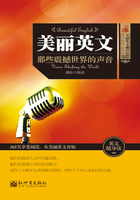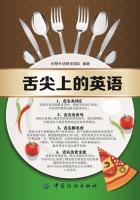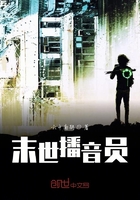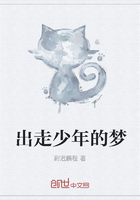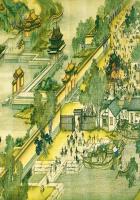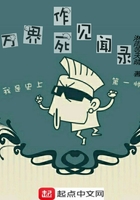A:You know what,the word Hutong originated from Mongolian language meaning“Well”。In ancient times,people tended to gather and live around wells。So the original meaning of Hutong should be“a place where people gather and live”。
B:But another explanation says that during the Yuan Dynasty,about 13th century,residential areas in the city were divided into many divisions。Between the smaller divisions were passageways for people to travel through。And those passageways also functioned as isolation belts against fire risks。In Mongolian language,passageways of this kind were called Hutong。
A:Anyway,no matter what Hutong exactly means,one thing is for sure,that is,Hutong first appeared in Beijing during the Yuan Dynasty。
B:Yes。Today you can find various Hutongs with different shapes,length or directions。The shortest one is only 40 centimeters wide,which means a person like me has to walk sideways to get through。And some Hutongs have more than 20 turns。
A:A stranger must get lost in these Hutongs。
B:Probably。As you walk through the Hutongs,you may find most of them look almost the same with gray-colored walls and bricks。
A:What's inside those walls and bricks?
B:Actually inside those walls are the courtyard houses,where people live。In Chinese we call them“siheyuan”,“Si”literally means four,“he”means to surround,and“yuan”refers to the courtyard。So a rectangular wall enclosing four houses,one built on each side facing into the center,is called a Siheyuan。When they were first built,usually one Siheyuan was owned by only one family,but nowadays,with the growth of the population,most Siheyuans are shared by 4 to 10 families。
A:That is very typical Chinese。
B:The gate building of each Siheyuan is the only thing that we can see along the Hutongs。Chinese people used to try to protect their privacy from being intruded by strangers。So the gate building,in old times,was a symbol to show the position of each house owner。You don't have to go inside the courtyard。Just look at the gate building,you can already tell whether it's an influential family or not。
A:So what's the gate of an influential family like?
B:The gate building is big and tall。The head and eave of the gate are well decorated with brick carvings。And the design is always plum blossoms and bamboos which indicate that the original owner of this courtyard must have been an official serving in the emperor's court。While a nest door,which has the lion design,shows that the owner used to be a military officer。
A:That's interesting。
A:你知道吗?“胡同”这个词来源于蒙古语,意思是“井”。古时候人们生活和聚集在井的周围,所以“胡同”一词的本意应是“人们生活聚集的地方”。
B:但是另外一个解释是,在元朝时(公元13世纪),居民区被分割成几个区域,区域间设过道以便于居民来往。这些过道的另一个作用就是隔离防火。在蒙古语中,这种过道称作胡同。
A:无论如何,不管它确切意思如何,有一点是可以肯定的,胡同在北京第一次出现是在元朝。
B:没错。今天你可以发现不同形状、长度和方向的胡同。最短的胡同只有10米长,最窄的胡同仅40厘米宽,也就是说象我这样的身材需要侧身走才能穿过胡同,还有些胡同有20多个弯。
A:一个生人在胡同里肯定会走丢的。
B:也许吧。当你进入胡同时,你也许发现几乎所有的墙和砖都是灰色的。
A:这些城墙里是什么呢?
B:其实,在这些墙的后面就是居民的家,我们称其为“四合院”。也就是一个长方形的围墙围着四间屋子,每间屋子的门朝着院子中间。过去,一个四合院只属于一个家庭,而现在随着人口的增长,大多数四合院住四至十户人家。
A:那是很典型的中国式。
B:在胡同中我们只能看见四合院的大门。古时候的中国人不希望有陌生人来打扰,因此从大门的样子就可以看出主人的身份和地位。
A:那么一个有身份的家庭的门是什么样的呢?
B:又高又大,门檐有砖雕装饰。图案有李子花和竹子的,意味着它的主人曾是侍奉皇帝左右的王公大臣。看旁边的门,有狮子的图案,这说明这里曾住着武官。
A:那真是有趣。
Rectangular adj。长方形的
Enclosing adj。封闭
Plum n。梅花
Carve v。雕刻
Division n。分支
Passageway n。过道
Residential adj。居民的
背景知识
Historical cycles that took a century to unfold in the West can be compressed into less than a decade in today's China。And that's as true of Beijing's preservation movement as it is of the nation's ferocious building boom。
The explosion of construction activity that has transformed Beijing into a modern metropolis over the past decade also turned many of its historical neighborhoods-known for their narrow alleyways,or hutongs-into rubble。As grass-roots preservationists began sounding the alarm,the aging wood frames and tile roofs of the ancient courtyard houses that give these neighborhoods their identity were being supplanted so quickly by mighty towers that it was hard to pinpoint where they once stood。
Now,as they labor to protect what remains,Chinese preservationists are facing a new,equally insidious threat:gentrification。The few ancient courtyard houses that survived destruction have become coveted status symbols for the country's growing upper class and for wealthy foreign investors。As more and more money is poured into elaborate renovations,the phenomenon is not only draining these neighborhoods of their character but also threatening to erase an entire way of life。
Meanwhile the intense focus on the fate of the hutongs has eclipsed an equally pressing preservation issue,the demolition of Socialist-style housing from the 1950s and 1960s。The imminent threat is historical censorship:a vision of the past that is so thoroughly edited that it will soon have little relation to the truth。
The hutong neighborhoods date to the 13th century,when Beijing's chessboard grid was created by the Mongol founders of the Yuan dynasty。The layout of the neighborhoods,with public life spilling into the hutong alleyways and private life hidden behind brick walls in the courtyard houses,remained largely unchanged in the first decade or so after the Communist takeover in 1949.The wealthy hutong neighborhoods were mostly to the north,and the denser,poorer neighborhoods were south of the Forbidden City。
Starting in the 1960s,however,as Beijing's population soared,a housing shortage developed。Suddenly three or four extended families were often packed into a courtyard house that had once been occupied by a single family。
Starved for space,the new residents often filled the courtyards with makeshift kitchens and sheds,transforming what had been airy,light-filled spaces into a suffocating warren of rooms。Few had basic plumbing,and soon even the wealthier hutongs had deteriorated into slums。
西方国家花了整整一个世纪来实现城市历史周期性的建筑更替,而在中国这仅仅花了不到十年。中国正是处于这样的一种建设热潮中,而“中国速度”点燃了北京的建筑保护运动。
在过去的十年里,激增的房地产投资和楼房建设在把北京变成一座现代化大都市的同时,也在摧毁着这座城市古老而独特的街道景观——胡同。一些来自草根阶级的建筑保护运动者已经发出警告:北京胡同四合院里那木梁瓦顶富有文化特色的建筑结构正面临着被高楼大厦钢筋混凝土取代的危险,在不远的将来,人们将再也看不到这些记载了城市古老记忆的特色建筑。
现在,中国的建筑保护运动者们正努力地去保卫那些剩存下来的古建筑,他们面对着一个新的威胁:旧城改造的中产阶级化(gentrification)。在过去城市建筑更替过程中保存下来为数不多的老四合院,现在成为了这个国家正在兴起的上流社会以及一些富有的外国投资者们身份地位的象征。他们不惜重本地用现代审美眼光精心装点这些古建筑,而这样的做法却使得胡同街道和四合院建筑彻底失去了原有的建筑色彩,他们正在摧毁着一种古老而悠久的生活方式。
同时,大众对胡同命运的重视间接地导致了社会对其他建筑保护问题的冷漠——很少人会去关注那些五六十年代富有社会主义特色的楼房建筑被破坏的问题。我们面临的历史考验是:旧的建筑景观被如此彻底地改变,在历史回忆与现实生活间我们几乎再也找不到一丝联系。
胡同的历史可以追述到十三世纪的元朝,蒙古统治者建造了棋盘布局的北京城,人们的公共社会活动在胡同中进行,而私人生活的部分则发生在砖墙后的四合院内,这是当时的城市生活景观。这样的生活方式在新中国成立后的头十年里并没有发生太大的变化,北京城北面的胡同比较富裕,而南面则人口密度要高一些,也相对的贫穷一些。
然而到了二十世纪六十年代,北京人口开始了飞速的增长,住房紧缺问题随之而来。原来只住一户人的房子,现在却突然挤进了三四户人家。
室内空间的拥挤,使新住户们不得不经常将临时的简易厨桌和橱柜塞满整个院子,这使得过去空气清新、阳光充足的庭院顿时变得非常拥挤。



